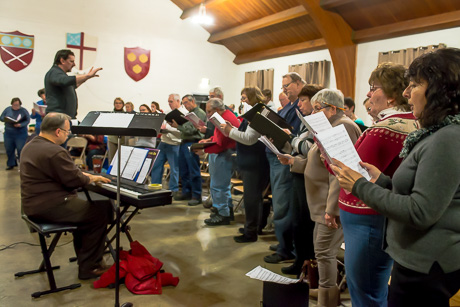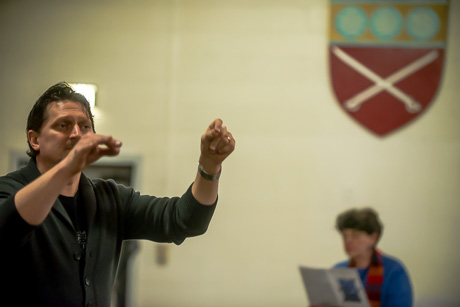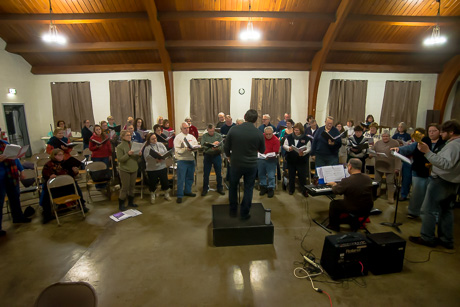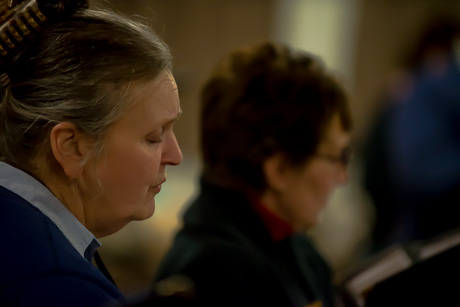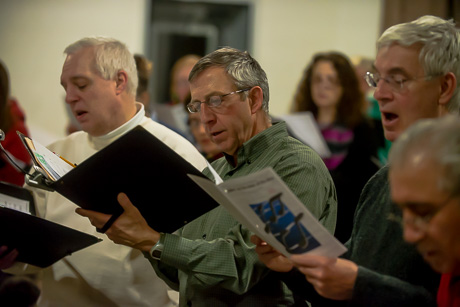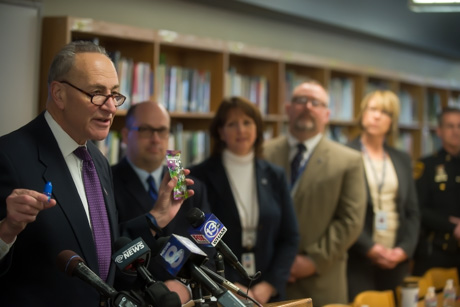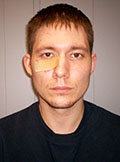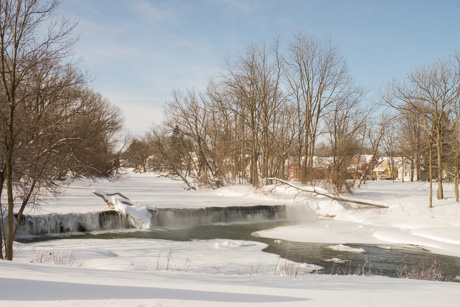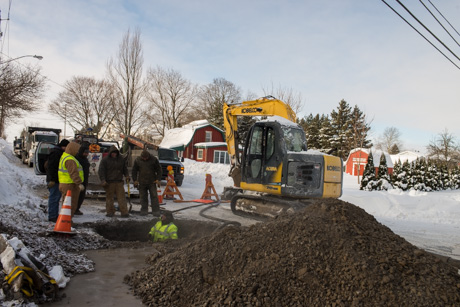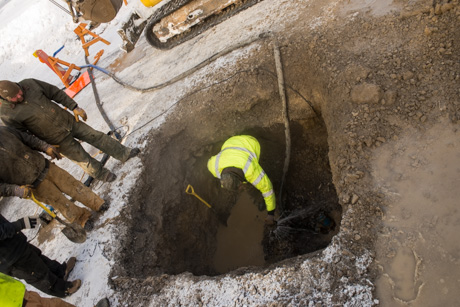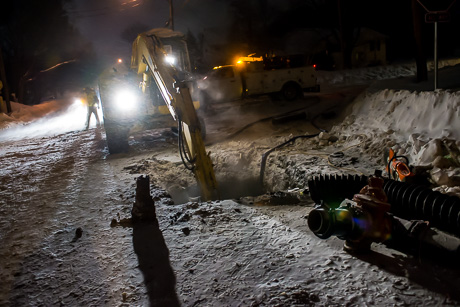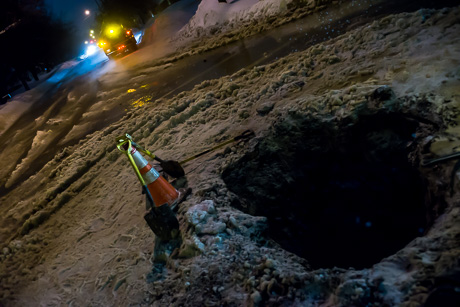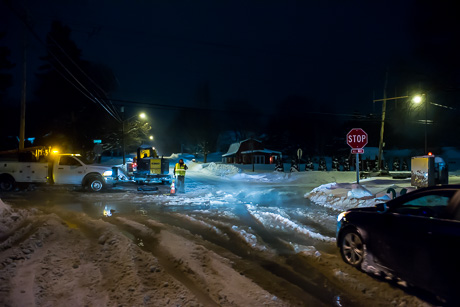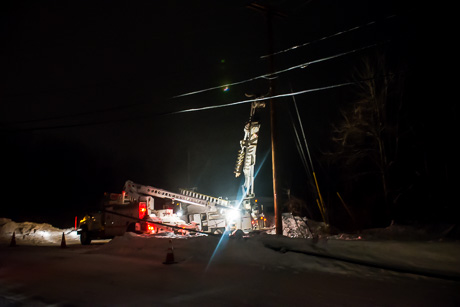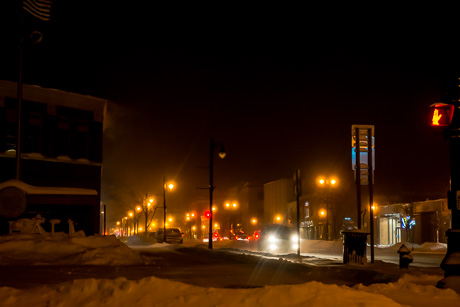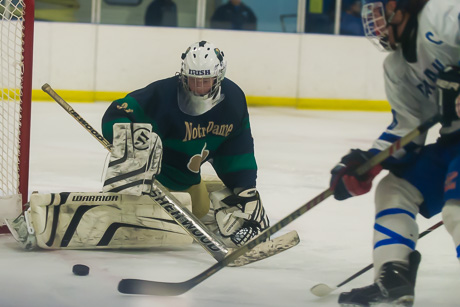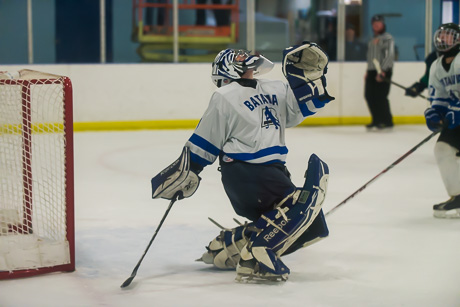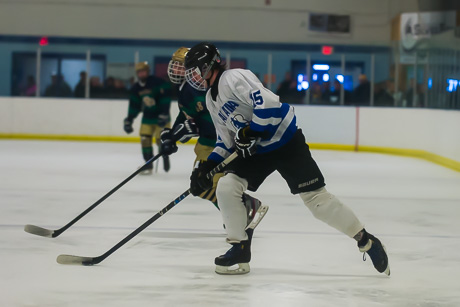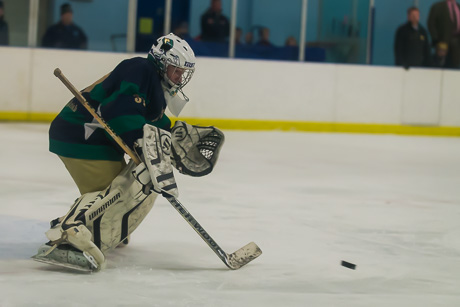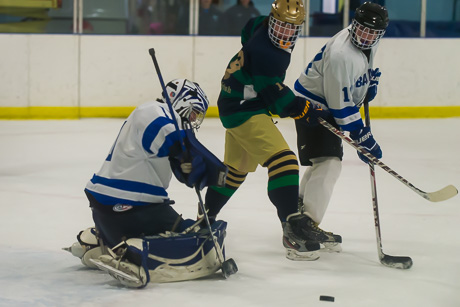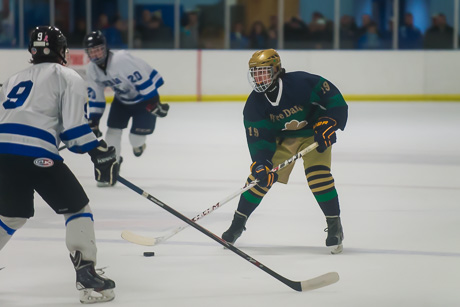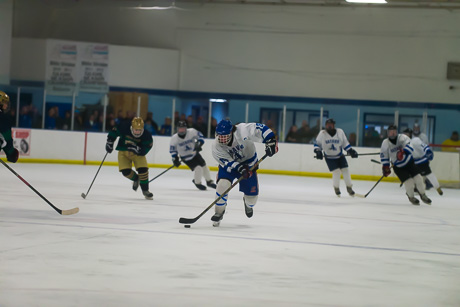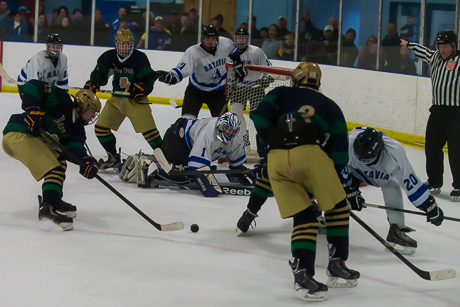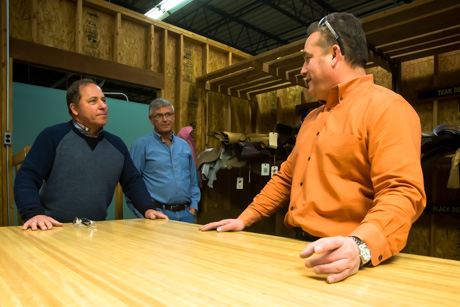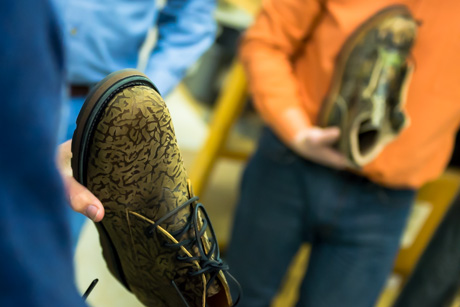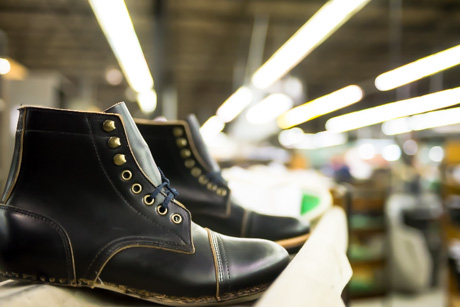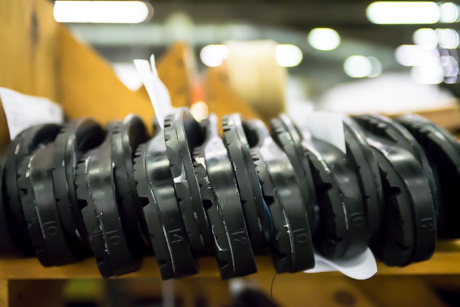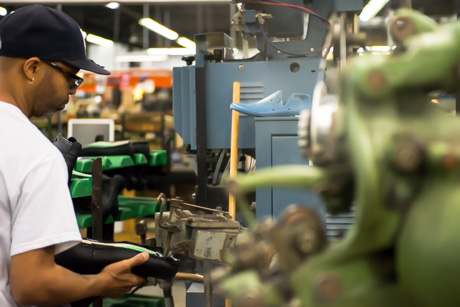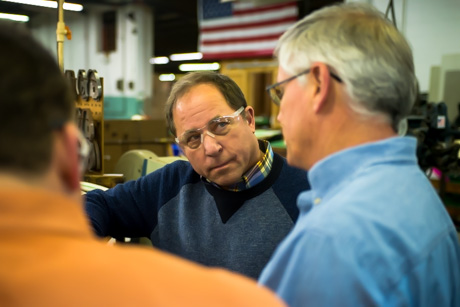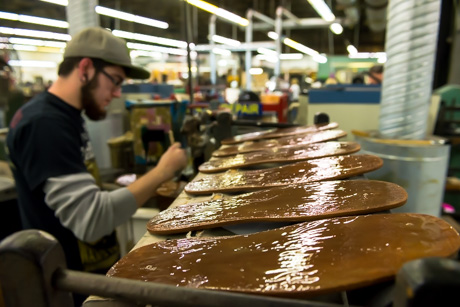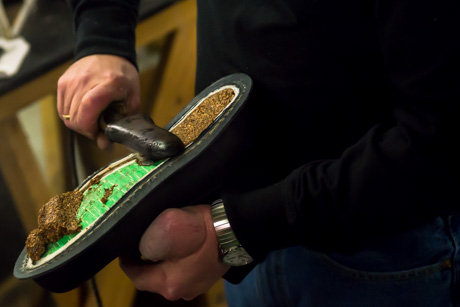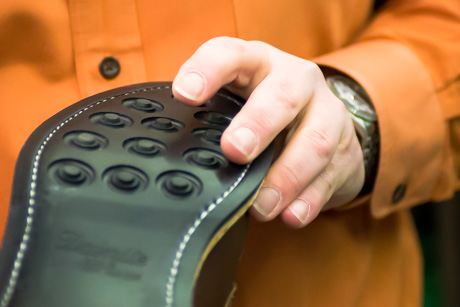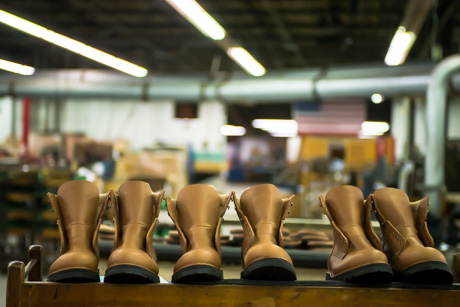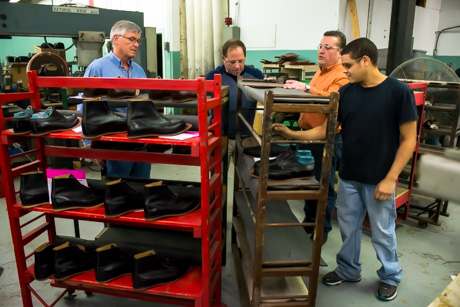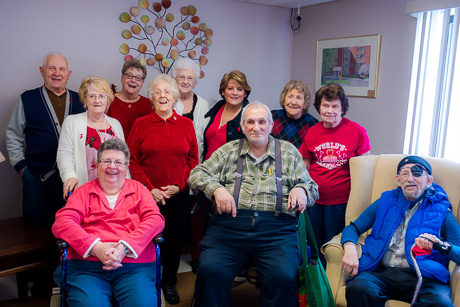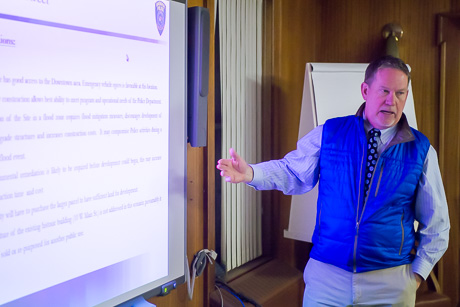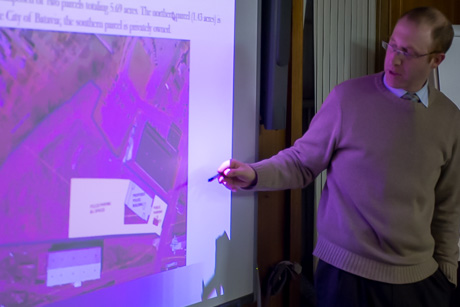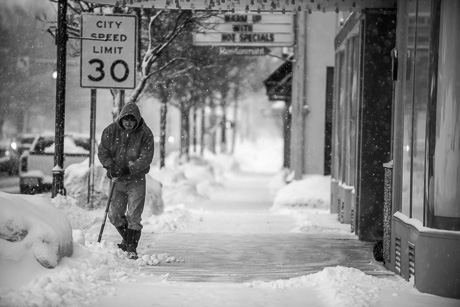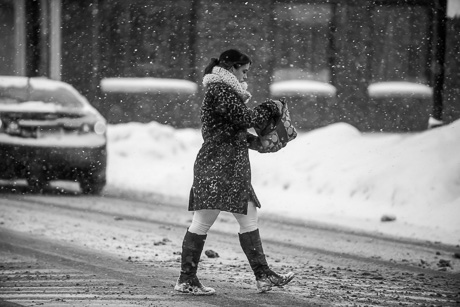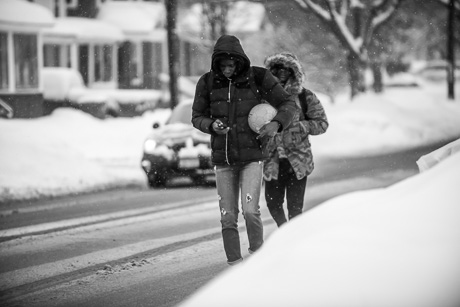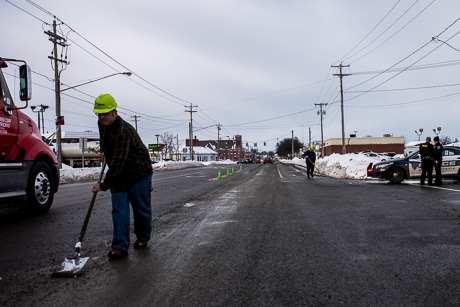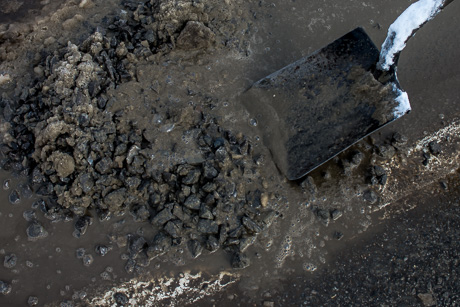When Pete Zeliff and Andrew Young first walked onto the factory floor of the p.w. minor building on Treadeasy Avenue, they knew nothing about the shoe industry.
"We could tie our own shoes," Young said with a wry smile Friday morning following a tour of the production line with Assemblyman Steve Hawley.
In the six months since Zeliff and Young rescued the 150-year-old shoe factory from closure, the two local businessmen have not only proven quick studies of the shoe business, they've pulled the firm from the brink of an abyss and placed it on the precipice of success.
After his walking tour, Hawley was impressed with what he saw and heard.
"With Pete and Andrew's investment here, and their hard work, the possibility of success in their eyes, their demeanor, and the people I've seen here working today with their smiles, you can see it," Hawley said. "It's great for the local economy, it's great for Western New York, to see people take a chance and that's what these two gentlemen have done. The State of New York ought to use them and p.w. minor as an example of how to be successful."
As neophytes in the shoe business, when Zeliff and Young first sat in their new offices, they wondered, why do shoes that feel good on your feet need to look dowdy and unimaginative?
The p.w. minor speciality are shoes designed and constructed for people with orthopedic needs, but why should orthopedic shoes be frumpy?
"We've been able to, with some stitching and some designs and some beautiful leathers that we're using, to upgrade those shoes," Young said. "The same lasts (forms used to make shoes), same fit, same feel, but it looks way more 'today,' I guess would be the word."
p.w. minor has long had some great-looking shoes in its line -- one shoe was bought as a prop for the former HBO series "Boardwalk Empire," after all -- and there are high-end brands that turn to p.w. minor to shod voguish-minded Wall Street bankers and urban hipsters.
But the persistent image of p.w. minor is for shoes that favor comfort over fad, In recent years, much of the shoe line had the look of something a doctor might prescribe to dowagers or retired postmen.
"When we got here, we were wondering why people who had to wear shoes that they needed for their feet, but they couldn't also look good," Young said.
One of the first of their new hires was a shoe designer out of Michigan who had experience with shoe company turnarounds.
Every shoe the company sells is getting a makeover. The first samples of the new line will make their industry debut at a trade show in Las Vegas.
"This is a company that designed about three shoes in the previous decade and we're going to a show next week where we're going to introduce three dozen shoes," Young said.
Of course, nobody is going to buy shoes if there are no feet on the street selling the revamped shoe lines to retailers and distributors.
The old p.w. minor got rid of the last of its sales staff years ago, Young said. He and Zeliff have hired five new sales reps so far and plan to hire as many as five more.
"That's already paying dividends," Young said. "We need to get our name out there. I think most of the marketplace thought we were basically dead, and there was good reason for that because we sort of were. I think they're starting to see, and they will really see it at this show next week, that we're definitely back."
The total new hires for Zeliff and Young is 16 so far, and Young says there's more to come. Part of the reason to let the media tag along on Friday's tour was to get the word out locally that p.w. minor is truly a new company. It's a place people should want to work, Young said, and Young wants to attract the best local employees.
p.w. minor was also a company that needed to do a better job of meeting the needs of existing customers. To that end, back orders have been cut tremendously. The company has gone from making 80 pair of shoes a day to 160. It used to take 25 to 26 days for a pair of shoes to wind through the production line. On Wednesday, the crew completed a line of shoes in 4.8 days.
That's a lot of change not just for the marketplace to absorb, but it's even been an adjustment for p.w. minor's employees.
There have certainly been some bumps along the way, Young indicated.
"I always say if I had a nickel for every time somebody says that's not the way we used to do things, I wouldn't need to sell any shoes," Young said. "This company was on a trajectory down, steeply down, and we want it to be on a trajectory steeply up. The change is sometimes hard for us to get through and hard to understand and accept. We're making great progress in that regard, but I like to say it's a big ship to turn. It's turning, but it takes some time."
Top photo: From a fit and feel perspective, the two shoes are essentially the same. They're made with the same fasts, but the one of the left uses more attractive leather and an updated design.
Hawley, Zeliff and Young in the leather room at p.w. minor.
Hawley holds another example of a p.w. minor shoe transformed by design and the material used to make it.
A pair of newly designed fashion boots near the end of production.
Soles waiting to become shoes.
A worker making a shoe.
Hawley with Young and Zeliff.
Glue on shoes.
Cork spread on the bottom of a shoe before the sole is attached. The cork helps ensure the comfort of the shoe's wearer.
This all-weather sole is on a shoe made for another company that sells it under its own brand name. Young said he and Zeliff love the sole, but it's only made in England, and p.w. minor's own shoes will be 100-percent made-in-America.
Nearly finished boots on the factory floor.
Zeliff, Hawley and Young with an employee near the end of the production line.
The slide show below is of pictures sent over by Young of some of the shoes that will be making their industry debut in Las Vegas next week.
